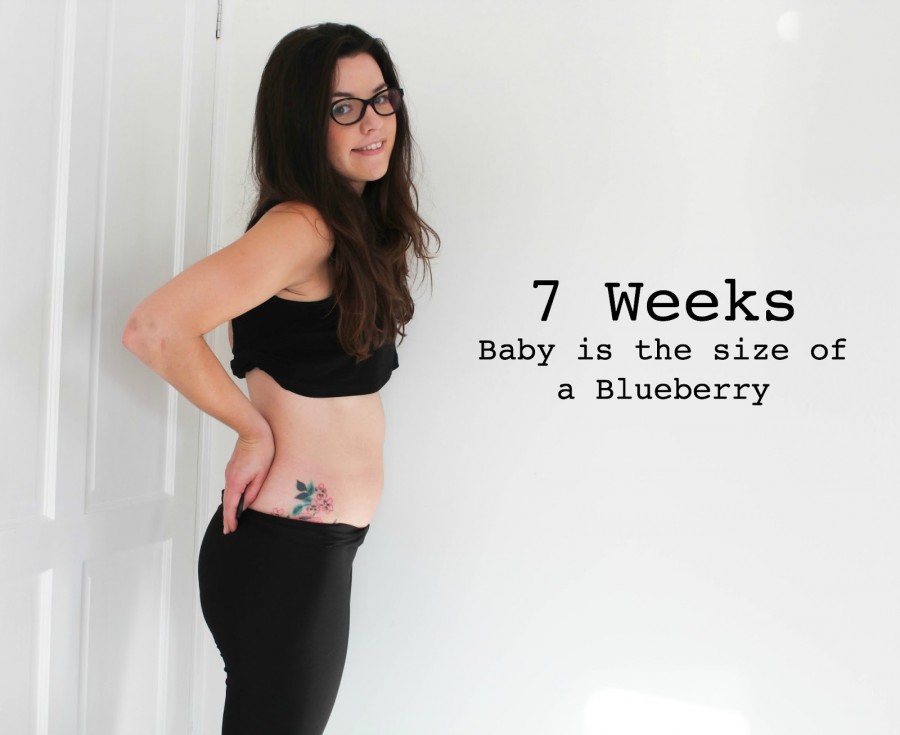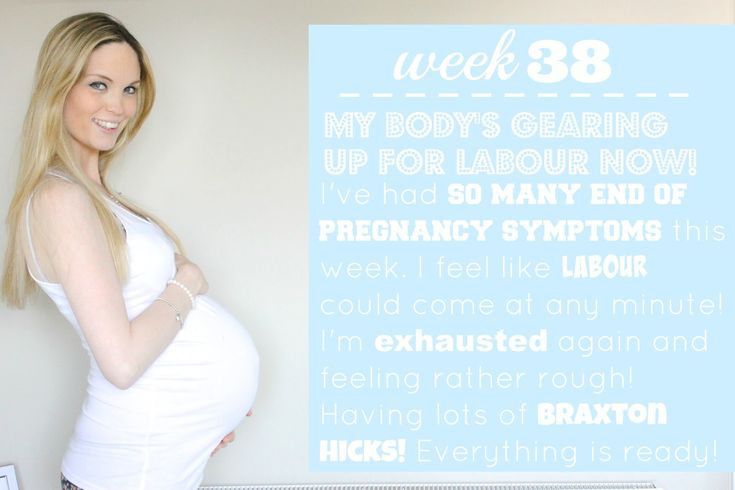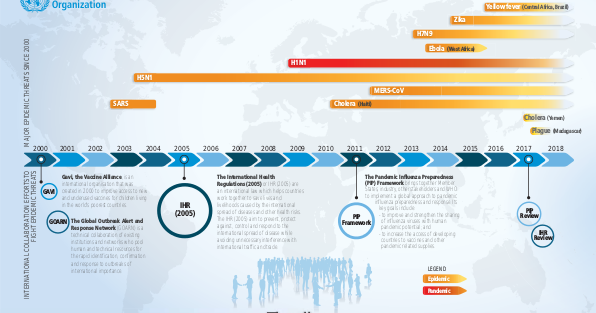Malaise during pregnancy
How to deal with malaise during pregnancy
Skip to ContentPregnancy is a difficult time for a woman's body – hormonal and physical changes have a significant impact, causing greater or lesser levels of discomfort. The period of waiting for your little one is full of joy and euphoria, but is also often overshadowed by not feeling great. How can you deal with this? How can you deal with weakness, lack of energy, bad mood and sleepiness? In consultation with specialists from the Gynaecology and Obstetrics Clinical Hospital of the Poznań University of Medical Sciences, we'll tell you how to get through this time. Famous mums have also shared their pregnancy problems – you can listen to their stories in the series on Facebook ‘Talks with experts: parenting made easier’.
Malaise during pregnancy – what should you look out for?
Every pregnancy is different – some women feel great up to eight months, and are simply radiant. They can exercise, don't gain much weight, and don't suffer from the issues that commonly arise in the first trimester. However, many have problems, such as nausea, weakness, back pain and swelling of the legs.
Remember that every problem should be consulted with the doctor looking after you during your pregnancy – never take any medications, supplements or even herbs without first asking your doctor! In this difficult period, you're responsible not only for yourself, but also for your baby! Also when the pregnancy is at risk, it is absolutely necessary to follow medical advice and do not use anything on your own!
Pregnancy problems
The most-common pregnancy problems, particularly in the first trimester, are:
- tiredness and sleepiness,
- sleeplessness,
- heartburn,
- swelling, particularly of the lower limbs,
- trouble concentrating,
- vomiting,
- excessive or non-existent appetite,
- back pain (this usually appears towards the end of the pregnancy),
- cramps.
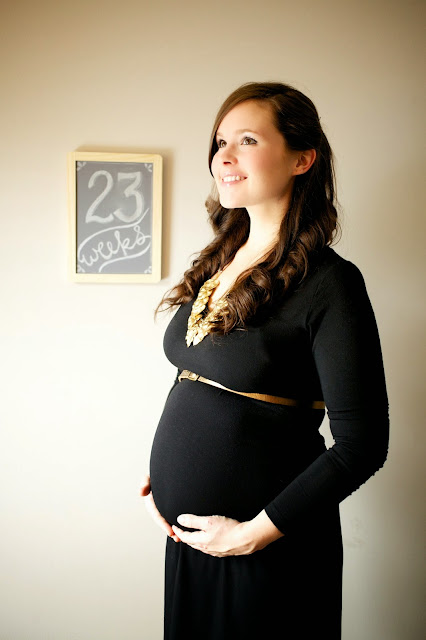
Reasons for malaise during pregnancy
Tiredness, lack of energy and general sleepiness are usually caused by hormonal changes that occur in the woman's body. High progesterone makes women feel weak and unmotivated, and a drop in blood pressure can also make them feel sleepy.
Another reason can be the mother's age – even if she's been pregnant before, this pregnancy may be a completely different experience. The older you are, the more your body, hormones and endurance change – that's why one pregnancy can be a breeze, while another may be completely different, like actress Aleksandra Szwed tells in the second episode of Important Conversations about Parenthood.
"In my first pregnancy, everything was wonderful – I was relaxed and always smiling. Nothing annoyed me," says Aleksandra Szwed. "But in this one? It's a completely different experience. It's not that I'm suffering terribly, but I feel completely different than with the first pregnancy. "
"
Małgorzata Socha has a similar recollection.
"I fondly remember my first pregnancy," says Małgorzata Socha. "Of course, I had time for myself. In this regard, the first one was amazing. The second and third time around, this wasn't possible, because the kids were the most important. It's difficult to explain to youngsters why they should play on their own while you have a nap. Or that today you're not cooking anything because you can't be bothered, because your legs hurt. The next pregnancies were simply different, and so I reacted to them differently."
And to top it all off, there was the weakness from the vomiting. How can you deal with this? How can you get through this time to enjoy being pregnant and have fond memories of this period?
How to deal with malaise during pregnancy
First of all – remember that it'll pass. Most afflictions disappear in the second trimester, which is called the golden period of pregnancy. But remember that if you are vomiting frequently and are unable to eat or drink, you need to see your doctor. They can prescribe medications to stop the vomiting. Also visit your doctor if you have heartburn to be sure that you're allowed to take over-the-counter medications. It is a harmful myth that "pregnancy must hurt" or "pregnancy does not make one ill". Don't pay any attention to people who talk about their experiences and play down how you're feeling – if you feel unwell, go to the doctor and take advantage of amenities such as priority in queues and free toilets. Don't be afraid to call your gynaecologist if you have any concerns – their role is to help, soothe and treat you. You're not alone in this!
They can prescribe medications to stop the vomiting. Also visit your doctor if you have heartburn to be sure that you're allowed to take over-the-counter medications. It is a harmful myth that "pregnancy must hurt" or "pregnancy does not make one ill". Don't pay any attention to people who talk about their experiences and play down how you're feeling – if you feel unwell, go to the doctor and take advantage of amenities such as priority in queues and free toilets. Don't be afraid to call your gynaecologist if you have any concerns – their role is to help, soothe and treat you. You're not alone in this!
If you're working and not taking the first trimester very well (to the stage that you're unable to work), ask for a medical certificate. You need to take care of yourself! If you can, sleep a lot. Remember to hydrate regularly, especially if you're vomiting. Drink water, preferably not sparkling. To make regular drinking easier, add fruit, such as lemon, raspberries and mint. Also look after your diet – eat easily digestible things, especially vegetables and fruit. They provide a lot of fibre and vitamins, which are beneficial. This doesn't mean that you need to give up pizza and hamburgers, but remember that there is a risk of gestational diabetes, so you should watch your weight and eat healthy food (not only during pregnancy).
Also look after your diet – eat easily digestible things, especially vegetables and fruit. They provide a lot of fibre and vitamins, which are beneficial. This doesn't mean that you need to give up pizza and hamburgers, but remember that there is a risk of gestational diabetes, so you should watch your weight and eat healthy food (not only during pregnancy).
A healthy diet will help you not only with problems with constipation and diarrhoea, but also with a sensitive stomach and your overall well-being. Try to have a healthy relationship with food, and never "eat for two". Contrary to popular belief, the caloric demand doesn't increase that much (in the first trimester, it doesn't change at all), and the greater your body weight, the more difficult things will be later – your joints, back or the whole body may hurt.
If your body is demanding it, have frequent naps. Your body regenerates best when you sleep, so naps are fantastic.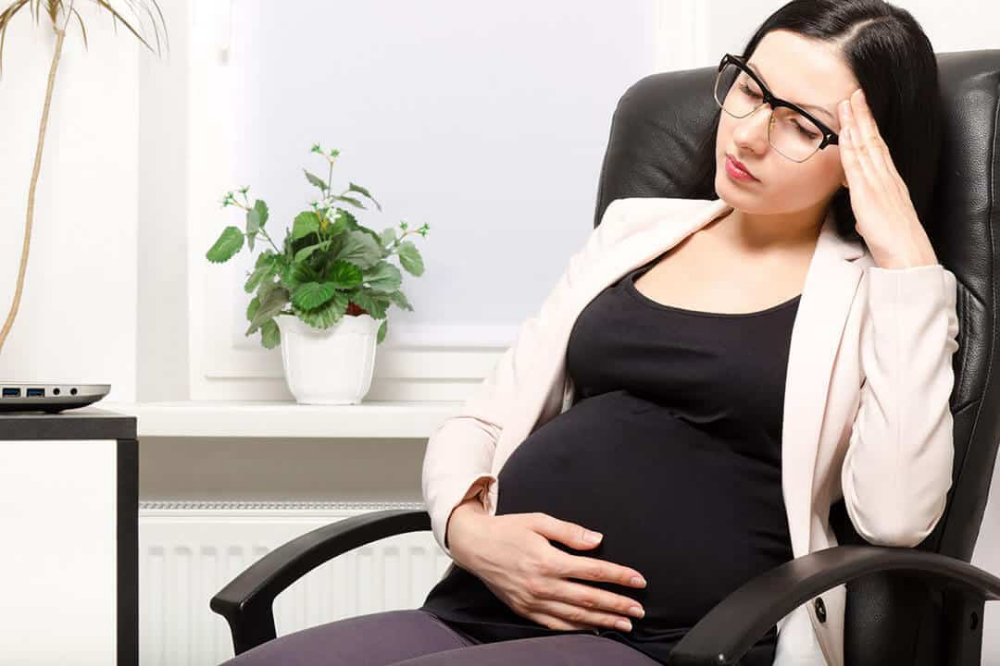 However, try not to dysregulate your biological clock – instead of having a nap at 7 pm, try to go to bed earlier to be able to sleep the entire night. Try meditation, yoga or a bath with scented candles.
However, try not to dysregulate your biological clock – instead of having a nap at 7 pm, try to go to bed earlier to be able to sleep the entire night. Try meditation, yoga or a bath with scented candles.
Light physical activity, such as walks, can be beneficial for your psyche. Plus, you'll oxygenate the body, and when you're walking on a sunny day, you'll provide an additional dose of vitamin D. And if there are no contraindications, don't give up exercise (but always consult this with your gynaecologist). You can read more about exercise during pregnancy as advised by Midwife Pip HERE.
If your malaise is mostly in relation to your mood, focus on relaxation. Go out with your friends, try some yoga, rest a lot and do what you enjoy. Reading, walks, watching series – whatever you like.
Don't be afraid to call your doctor if medical maladies appear – your gynaecologist will know if you can take heartburn tablets, if you don't have enough vitamin D (which also results in mood swings), or if you perhaps need to increase your supplements.
Does the way you feel during pregnancy impact your child?
This is a question often asked by future mums. There's a widespread and damaging myth that girls "steal your beauty" and that women feel worse at this time. This is neither accurate nor medically proven – firstly, remember that how you feel during pregnancy depends on many aspects – a lack of sleep, general tiredness, stress, and even what you eat. The weather and which pregnancy it is can also be contributing factors.
So there's no way to predict the sex of the baby based solely on how a woman feels during the pregnancy. An ultrasound will always be the most accurate – this is usually carried out at approximately 20 weeks.
Kinderkraft Academy Rating:Comments(0)
Subscribe to
Newsletter and receive
5% discount
on first purchase!
Almost!
Check your mailbox.
* I want to receive personalized commercial information, and therefore I consent to the processing of my personal data for the purpose of sending marketing information about products and services of 4Kraft sp. z o.o. with its registered office in Poznań and to receive commercial information sent by 4Kraft sp. z o.o. to the e-mail address provided by me for the purpose of direct marketing. Expand You can withdraw your consent at any time by clicking on the link in our newsletter. At the same time, I consent to the automated processing, including profiling of my personal data regarding my activity on the Kinderkraft.co.uk website and on social profiles, using the e-mail address provided by me when creating an account, as well as based on my purchase history on Kinderkraft.co.uk, by using them to evaluate certain information, in particular to analyse or forecast and adjust the marketing activities of 4Kraft sp. z o.o. to my personal preferences. I consent to automated decision making based on profiling my data in order to receive personalized commercial and marketing information from 4Kraft sp. z o.o. ** The Controller of your personal data is 4Kraft sp. z o.o. - detailed information can be found HERE. ** Dear User, personalized marketing activities are based on the use of cookie technology and are closely related to the consent to the use of cookies for statistical and marketing purposes, therefore, if you want to receive commercial information dedicated to you - please check the detailed information on how you can change your consent settings in our Privacy Policy and in the Cookie Settings in the footer of the home page. Roll up
z o.o. ** The Controller of your personal data is 4Kraft sp. z o.o. - detailed information can be found HERE. ** Dear User, personalized marketing activities are based on the use of cookie technology and are closely related to the consent to the use of cookies for statistical and marketing purposes, therefore, if you want to receive commercial information dedicated to you - please check the detailed information on how you can change your consent settings in our Privacy Policy and in the Cookie Settings in the footer of the home page. Roll up
We have sent you an e-mail asking you to confirm your subscription to the Kinderkraft newsletter. Click on the link sent in the message and enjoy the best offers prepared especially for you and your child.
Dealing with fatigue during your pregnancy
Dealing with fatigue during your pregnancy | Pregnancy Birth and Baby beginning of content3-minute read
Listen
Feeling hot, tired or faint is quite common during pregnancy.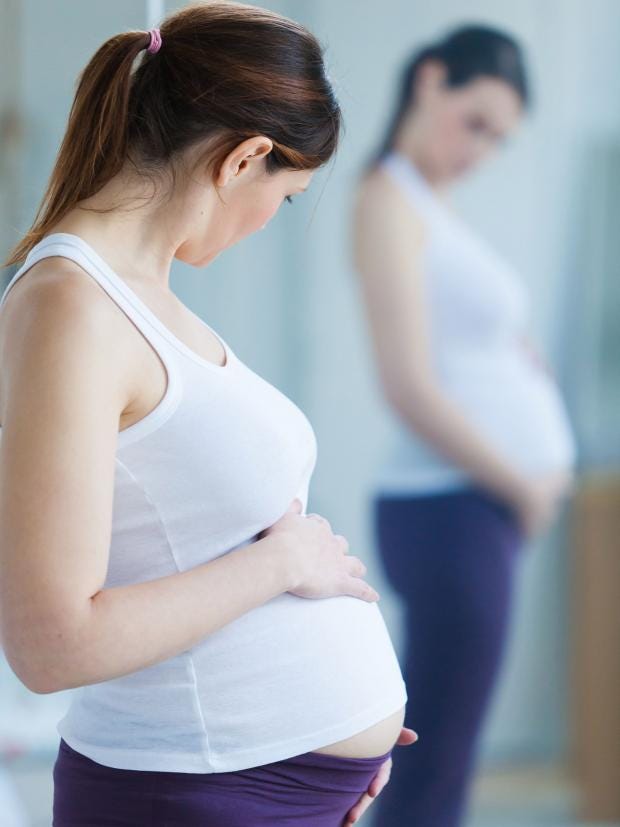 Hormonal changes taking place in your body at this time can make you feel nauseous and emotional.
Hormonal changes taking place in your body at this time can make you feel nauseous and emotional.
Being tired and run-down can also make you feel low. Try to look after your physical health by eating a healthy diet, doing some gentle exercise and getting plenty of rest and sleep.
It’s common to feel tired, or even exhausted, during pregnancy.
Feeling hot
During pregnancy you’re likely to feel warmer than normal. This is due to hormonal changes and an increase in blood supply to the skin. You’re also likely to sweat more. It helps if you:
- wear loose clothing made of natural fibres, as these are more absorbent and breathe more than synthetic fibres
- keep your room cool — you could use an electric fan to cool it down
- wash frequently to help you feel fresh
- drink plenty of water
Feeling tired
It’s common to feel tired, or even exhausted, during pregnancy, especially in the first 12 weeks or so. If you have morning sickness, fatigue can also make the nausea worse. Feeling tired won’t harm you or your baby, but it can make life feel more difficult, especially in the early days before you’ve told people about your pregnancy.
Feeling tired won’t harm you or your baby, but it can make life feel more difficult, especially in the early days before you’ve told people about your pregnancy.
Later in pregnancy, you may feel tired because of the extra weight you are carrying. As your baby gets bigger, it can be difficult to get a good night’s sleep. You might find it uncomfortable lying down or, just when you get comfortable, you have to get up to go to the toilet.
Your sleep patterns change when you are pregnant and you are likely to have less deep sleep and to wake up more often during the night.
The only answer is to try to rest as much as possible. Make time to sit with your feet up during the day, and accept any offers of help from colleagues and family.
You can read more about getting better sleep during pregnancy on the Sleep Health Foundation website.
Feeling faint
Pregnant women often feel faint. This is because pregnancy affects your circulation. If your brain does not getting enough blood and your oxygen levels get too low, it may cause you to faint.
You are most likely to feel faint if you stand up too quickly from a chair, off the toilet or out of a bath, but it can also happen when you are lying on your back.
Here are some tips to help you cope:
- Try to get up slowly after sitting or lying down.
- If you feel faint, sit or lie down and put your head between your legs until the faintness passes. If it doesn’t, lie down on your side.
- If you feel faint while lying on your back, turn on your side (it’s better not to lie flat on your back in later pregnancy or during labour).
- Drink plenty of water.
- Eat regularly to keep your blood sugar levels stable.
Make sure you let your doctor or midwife know if you frequently feel dizzy or faint.
If you feel very dizzy or faint early in the pregnancy and you also have bleeding from your vagina or tummy pain, you could have an ectopic pregnancy. It’s important to see a doctor right away.
Sources:
NSW Health (Having a baby), Royal Women’s Hospital (Common concerns in early pregnancy)Learn more here about the development and quality assurance of healthdirect content.
Last reviewed: November 2020
Back To Top
Need more information?
Sex during pregnancy
It's perfectly safe to have sex during pregnancy. It is normal for your sex drive to change during pregnancy, so make sure to talk about it with your partner.
Read more on Pregnancy, Birth & Baby website
Pregnancy changes video: second trimester | Raising Children Network
In this video mums and dads describe physical and emotional changes in the second trimester of pregnancy. A midwife says tiredness and nausea might ease.
Read more on raisingchildren.net.au website
Yoga and Pilates during pregnancy
Yoga and Pilates during pregnancy can be beneficial, but you should be careful to avoid some positions.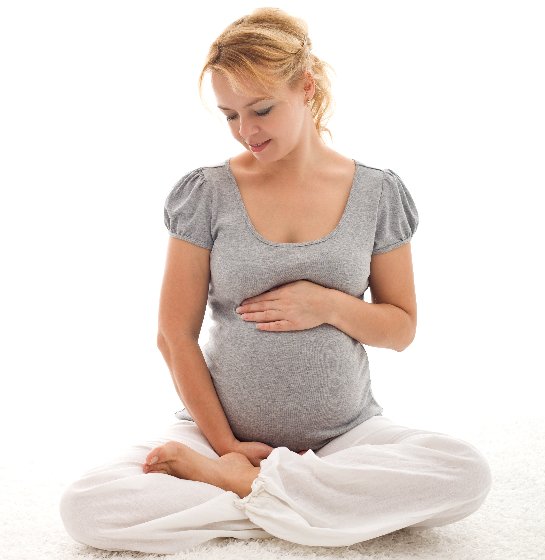 Find out how yoga and Pilates can help you here.
Find out how yoga and Pilates can help you here.
Read more on Pregnancy, Birth & Baby website
Second trimester of pregnancy: for men | Raising Children Network
Tiredness and morning sickness often ease up in pregnancy’s second trimester. Our guide explains how this can be a special time for men and their partners.
Read more on raisingchildren.net.au website
Sleep during pregnancy
Sleep can become a problem when you're pregnant. Here are some tips to help you get as much sleep as possible so you’re ready for your baby's arrival.
Read more on Pregnancy, Birth & Baby website
Cytomegalovirus (CMV) during pregnancy
Learn more about Cytomegalovirus (CMV), how it can affect your baby and how best to prevent it.
Read more on Pregnancy, Birth & Baby website
Working during pregnancy
UnIess your doctor tells you it is unsafe, it is possible to work while pregnant. Get some tips on managing and making adjustments to your work and career.
Read more on Pregnancy, Birth & Baby website
Tips to be more active during pregnancy - Ngala
Exercising during pregnancy is a great way to maintain good health, boost your mindset and spend time with friends
Read more on Ngala website
Cold and flu during pregnancy and breastfeeding
When you are pregnant or breastfeeding you need to be careful how you treat cold or flu as it can effect your unborn baby.
Read more on Pregnancy, Birth & Baby website
Anxiety and Depression during pregnancy and the postnatal period
Read more on Black Dog Institute website
Disclaimer
Pregnancy, Birth and Baby is not responsible for the content and advertising on the external website you are now entering.
OKNeed further advice or guidance from our maternal child health nurses?
1800 882 436
Video call
- Contact us
- About us
- A-Z topics
- Symptom Checker
- Service Finder
- Linking to us
- Information partners
- Terms of use
- Privacy
Pregnancy, Birth and Baby is funded by the Australian Government and operated by Healthdirect Australia.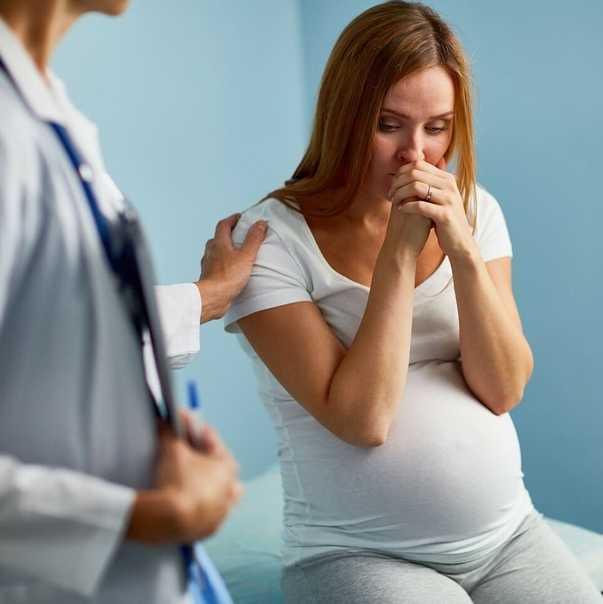
Pregnancy, Birth and Baby is provided on behalf of the Department of Health
Pregnancy, Birth and Baby’s information and advice are developed and managed within a rigorous clinical governance framework. This website is certified by the Health On The Net (HON) foundation, the standard for trustworthy health information.
This site is protected by reCAPTCHA and the Google Privacy Policy and Terms of Service apply.
This information is for your general information and use only and is not intended to be used as medical advice and should not be used to diagnose, treat, cure or prevent any medical condition, nor should it be used for therapeutic purposes.
The information is not a substitute for independent professional advice and should not be used as an alternative to professional health care. If you have a particular medical problem, please consult a healthcare professional.
Except as permitted under the Copyright Act 1968, this publication or any part of it may not be reproduced, altered, adapted, stored and/or distributed in any form or by any means without the prior written permission of Healthdirect Australia.
Support this browser is being discontinued for Pregnancy, Birth and Baby
Support for this browser is being discontinued for this site
- Internet Explorer 11 and lower
We currently support Microsoft Edge, Chrome, Firefox and Safari. For more information, please visit the links below:
- Chrome by Google
- Firefox by Mozilla
- Microsoft Edge
- Safari by Apple
You are welcome to continue browsing this site with this browser. Some features, tools or interaction may not work correctly.
1st trimester of pregnancy: what happens to the fetus
1st trimester of pregnancy: what happens to the fetus - Private maternity hospital Ekaterininskaya Clinics1st trimester: 1st-12th weeks
The gestational age is calculated from the first day of the last menstruation, since it is difficult to determine the exact day of conception. Since conception usually occurs in the middle of the menstrual cycle, you are not actually pregnant during the first two weeks, but this period is counted as the beginning of pregnancy.
Since conception usually occurs in the middle of the menstrual cycle, you are not actually pregnant during the first two weeks, but this period is counted as the beginning of pregnancy.
As soon as the fertilization of the egg takes place around the 3rd week, the hormones begin to produce changes in your body little by little. As a result, you may experience some of the following symptoms:
- Morning sickness. As a result of rising levels of hormones characteristic of pregnancy, up to 80% of women in the 1st trimester experience morning sickness with symptoms such as nausea and vomiting. The idea that such malaise is observed only in the morning is a common misconception. In fact, symptoms can appear at any time of the day or night. Up to 1 in 5 women experience morning sickness in the 2nd trimester of pregnancy and can sometimes persist throughout pregnancy.
If you experience morning sickness, avoid foods that make you sick, eat little and often, avoid fatty and spicy foods, drink more water.
 If you experience severe symptoms or symptoms that bother you, see your doctor.
If you experience severe symptoms or symptoms that bother you, see your doctor. - Breast changes. The mammary glands will begin to increase in size, soreness may appear. The nipples will increase in size, become darker and more protruding.
- Fatigue. High levels of the hormone progesterone can make you feel tired and sleepy. Rest as often as possible in a horizontal position with your legs up and eat as well as possible, which is not easy if you are experiencing morning sickness!
- Increased emotionality. A higher level of emotionality, manifested as a result of an increase in hormone levels, is normal. Understanding and patience on the part of your partner and loved ones is very important here.
- Food likes and dislikes. You may find yourself intolerant of one food and addicted to another. This is usually not a problem, unless you feel like eating weird foods like chalk.
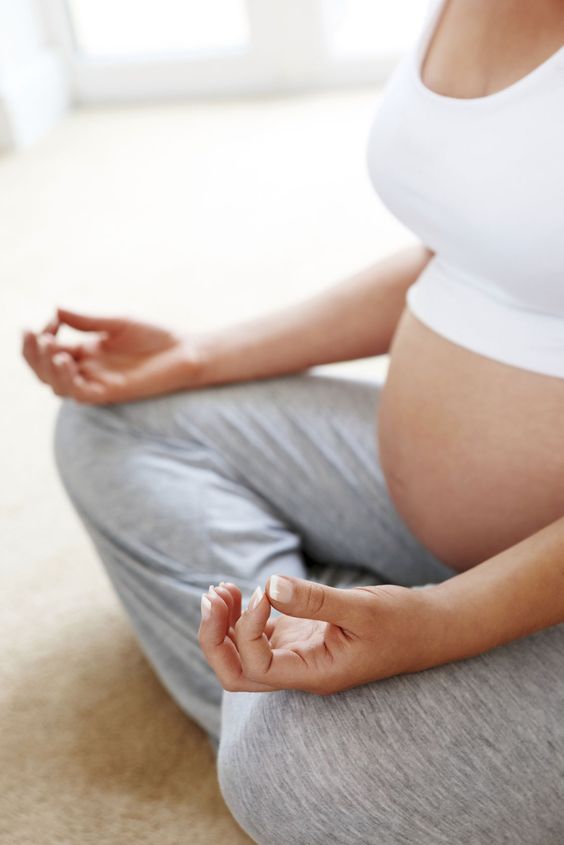 If you are concerned about the situation, contact your doctor.
If you are concerned about the situation, contact your doctor. - Frequent urination. As your fluid levels increase and your uterus puts pressure on your bladder, you will become more likely to visit the toilet. Go to the toilet as soon as you feel the need - this minimizes the pressure on the bladder.
- Feeling of dizziness. Sometimes you may feel a little dizzy (this is due to hormonal changes). Try not to stay on your feet for a long time and slowly rise from a sitting or lying position. If you experience severe dizziness, contact your doctor immediately.
- Heartburn and constipation. Your digestive system will slow down to give you more time to digest your food. This can lead to heartburn and constipation. To help manage heartburn, try to eat small meals at regular intervals and avoid fried or spicy foods and carbonated drinks. Constipation is helped by eating a diet rich in fiber, maintaining physical activity and drinking plenty of water.
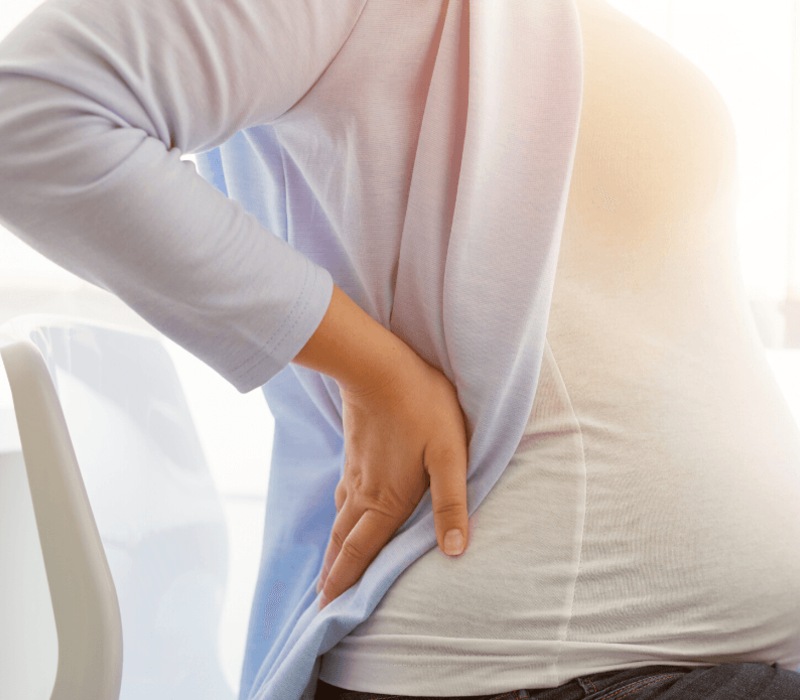
1st trimester milestones
- Approximately 7 days after fertilization, the embryo implants in the uterine wall. The placenta, umbilical cord and amniotic sac will begin to form to provide nourishment and protection to the embryo.
- By the end of the first 12 weeks of pregnancy, the uterus is palpable through the wall of the abdomen, the abdomen will begin to grow.
Child development in the 1st trimester of pregnancy
By the end of the 1st trimester:
- All the main organs of the baby are formed, the circulatory system works.
- The development of the sexual organs has begun.
- Fingers are formed on the hands and feet, nails have appeared.
- Facial features have formed.
- The length of the baby's body is about 6 cm from the head to the lower part of the body, he is already recognizable. The baby moves in the amniotic sac, but you don't feel it move yet.
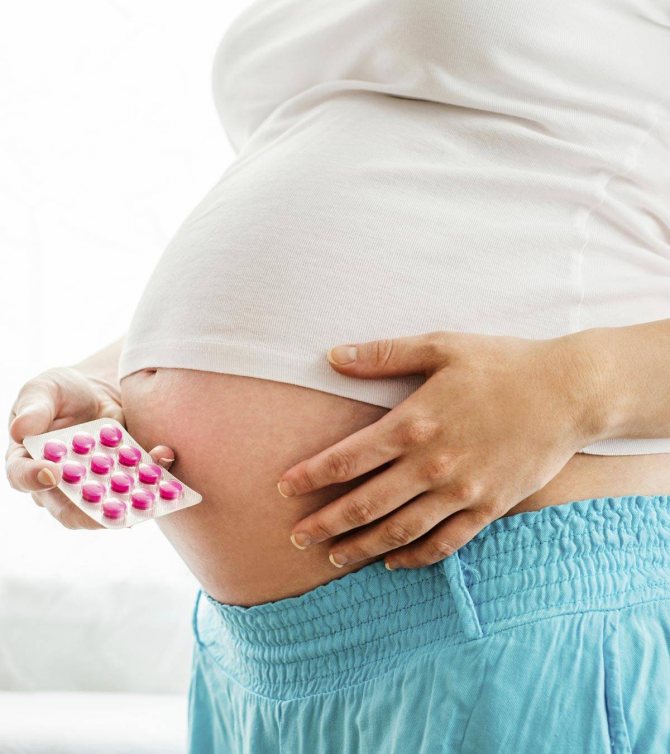
Clinic mobile app
You can make an appointment with a doctor, get tests
and much more...
Fill out the form to make an appointment or order a call back
I agree with personal data processing policy and user agreement I also give my consent to the processing of personal data.
Sign up for a consultation
I agree with personal data processing policy and user agreement I also give my consent to the processing of personal data.
By continuing to use rd.clinic23.ru, you agree to the use of cookies. How to ban the use of certain cookies can be found in Politics
1st, 2nd and 3rd trimester
During the period of carrying a baby, the expectant mother carefully monitors her well-being, worrying, first of all, about the health of the fetus.
Important!
In order to avoid groundless worries, a woman should know which symptoms are quite normal for pregnancy or, on the contrary, pose a danger to both her and the child.:strip_icc():format(jpeg)/kly-media-production/medias/2785562/original/028627600_1556001360-shutterstock_1019963743.jpg) Acquaintance with relevant literature or conversations with specialists will be especially useful for girls who are preparing to become a mother for the first time.
Acquaintance with relevant literature or conversations with specialists will be especially useful for girls who are preparing to become a mother for the first time.
A woman already has her own experience with a second pregnancy. She can compare her feelings, catch possible deviations from the norm.
Well-being during pregnancy depends on the age of the future mother, on the initial state of her health and even on the sex of the child (although the latter statement has not been scientifically proven and is in the nature of a sign). A young girl without malformations and chronic ailments will more easily endure pregnancy. And qualified specialists will help a woman with certain diseases to give birth to a healthy baby.
Despite the fact that bearing a child is a unique and highly individual process, there are a number of characteristic features in the state of health at different stages of pregnancy:
- The first trimester is often accompanied by some emotional instability of the expectant mother.
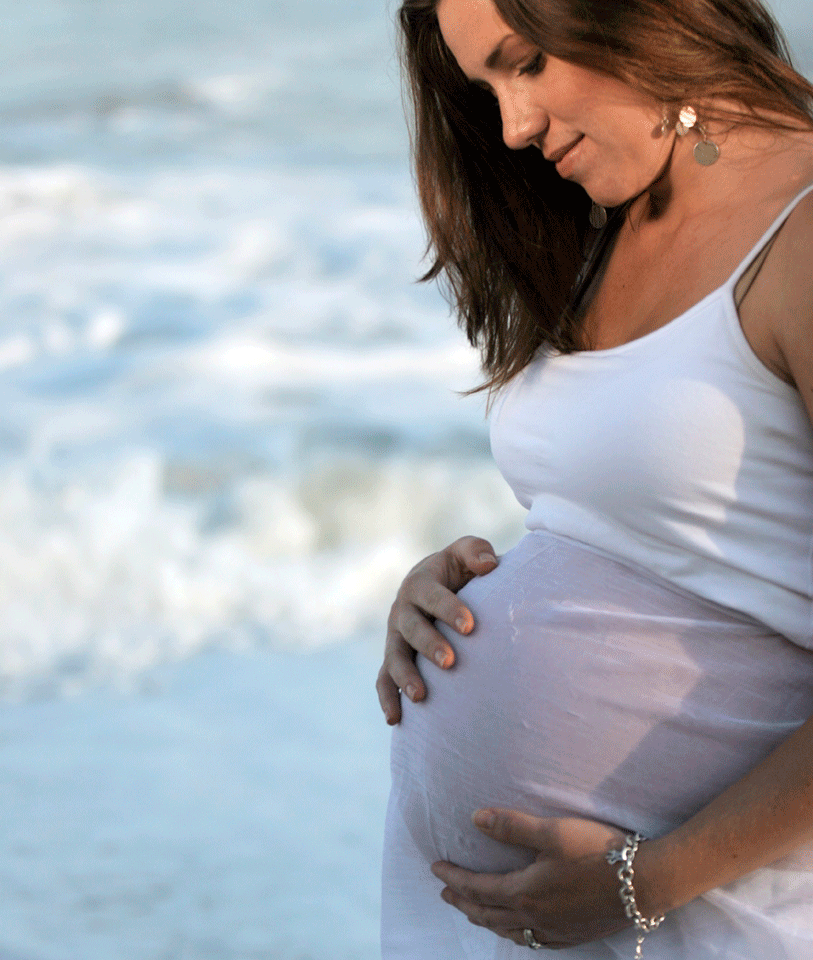 At the same time, her general well-being is characterized by weakness and drowsiness. A rare woman in the first trimester bypasses toxicosis: its mild degree in the form of morning sickness is a completely expected phenomenon.
At the same time, her general well-being is characterized by weakness and drowsiness. A rare woman in the first trimester bypasses toxicosis: its mild degree in the form of morning sickness is a completely expected phenomenon. - The second trimester of pregnancy is considered the most comfortable and carefree. The expectant mother will soon feel the timid movements of her baby. Her appetite is noticeably improving.
- Pregnancy in the third trimester, approaching its end, brings a number of physical difficulties due to a significant increase in the size of the uterus. The psychological well-being of the expectant mother is characterized by a balance of two processes - the fear of childbirth and the anticipation of the joy of the upcoming meeting with the baby.
Feeling well in the first trimester of pregnancy
Shortly after conception, a kind of revolutionary transformation of the hormonal background takes place in the body of a woman. The endocrine system of the mother tries to create the most favorable conditions for the intrauterine development of the fetus. A woman's well-being during pregnancy, especially in the first trimester, changes primarily under the influence of progesterone - the ovaries begin to actively synthesize this hormone after fertilization. Thanks to progesterone, the vessels that feed the pelvic organs expand. Thus, the flow of oxygen and nutrients to the embryo improves, and other organs of the expectant mother find themselves in a somewhat deprived position.
A woman's well-being during pregnancy, especially in the first trimester, changes primarily under the influence of progesterone - the ovaries begin to actively synthesize this hormone after fertilization. Thanks to progesterone, the vessels that feed the pelvic organs expand. Thus, the flow of oxygen and nutrients to the embryo improves, and other organs of the expectant mother find themselves in a somewhat deprived position.
Important!
The redistribution of blood in a woman's body in the first trimester of pregnancy leads to a slight drop in blood pressure, which may cause increased drowsiness, absent-mindedness, fatigue and general weakness.
In the early stages of bearing a child, a woman's well-being can be overshadowed by toxicosis of varying severity - from mild nausea to persistent vomiting in response to food intake or certain smells. Experts will help to cope with malaise by recommending fractional meals and a special medical and protective regimen of the day in the first trimester. Prolonged toxicosis can cause hospitalization: it interferes with the normal absorption of food, as a result, the full supply of the baby with the necessary substances.
Prolonged toxicosis can cause hospitalization: it interferes with the normal absorption of food, as a result, the full supply of the baby with the necessary substances.
During pregnancy, taste preferences may change, some quirks may appear. A woman begins to feel an aversion to meat, gravitates towards salty foods and is ready to absorb chalk, tooth powder or dry pasta with pleasure. Such a perversion of taste is often explained by the development of iron deficiency anemia during pregnancy.
In the first trimester, the expectant mother notes discomfort in the mammary glands, pigmentation of the nipples, increased vaginal discharge, increased urination. These processes are physiological. But the appearance of pulling pains in the lower abdomen and blood from the genital tract are pathological symptoms. To maintain pregnancy, you should immediately seek medical help.
The well-being of the expectant mother: the second trimester
The first three dangerous (due to the relatively high risk of miscarriage) months of pregnancy have passed. The second trimester of childbearing has begun. The baby and mother are used to coexistence. Toxicosis receded, general well-being improved. The woman's tummy is noticeably rounded and clearly pleasing to the eye.
The second trimester of childbearing has begun. The baby and mother are used to coexistence. Toxicosis receded, general well-being improved. The woman's tummy is noticeably rounded and clearly pleasing to the eye.
Closer to the 20th week of pregnancy, the expectant mother listens especially carefully to her well-being, waiting for the first time to feel the baby moving.
An increase in the level of estrogen and, as a result, the retention of excess fluid in the body of a pregnant woman can adversely affect her well-being in the second trimester. It is not so much the obvious swelling of the lower extremities that is dangerous, but the swelling of the placenta that is not visible to the eye, the development of which can disrupt the blood supply to the fetus. Refusal of liquid food is not the best solution to the problem. After all, water, along with foods rich in vegetable fiber, helps to avoid the development of constipation in the second trimester.
The expectant mother's appetite has noticeably improved. When catching up, do not overdo it, remember the list of prohibited foods: fast food, fatty, spicy, smoked dishes, raw eggs, sushi, moldy cheeses, carbonated drinks, coffee, alcohol. Give preference to healthy food: meat, lean fish, cereals.
When catching up, do not overdo it, remember the list of prohibited foods: fast food, fatty, spicy, smoked dishes, raw eggs, sushi, moldy cheeses, carbonated drinks, coffee, alcohol. Give preference to healthy food: meat, lean fish, cereals.
The second trimester is a time of strict control over body weight. An increase of no more than 300 g is allowed weekly. In the third trimester of pregnancy, this increase should not exceed 400 g. In case of excess weight, the doctor will review the diet of a pregnant woman and prescribe fasting days.
Pregnant woman's well-being: the third trimester
From the 27th obstetric week, the third trimester of childbearing begins. Pregnancy, approaching completion, introduces a number of physical inconveniences into the well-being of the expectant mother. By the end of the third trimester, the maximally enlarged uterus causes some displacement of the internal organs. The woman is worried about shortness of breath, lower back pain, frequent urination, possible constipation, varicose veins in the legs.


